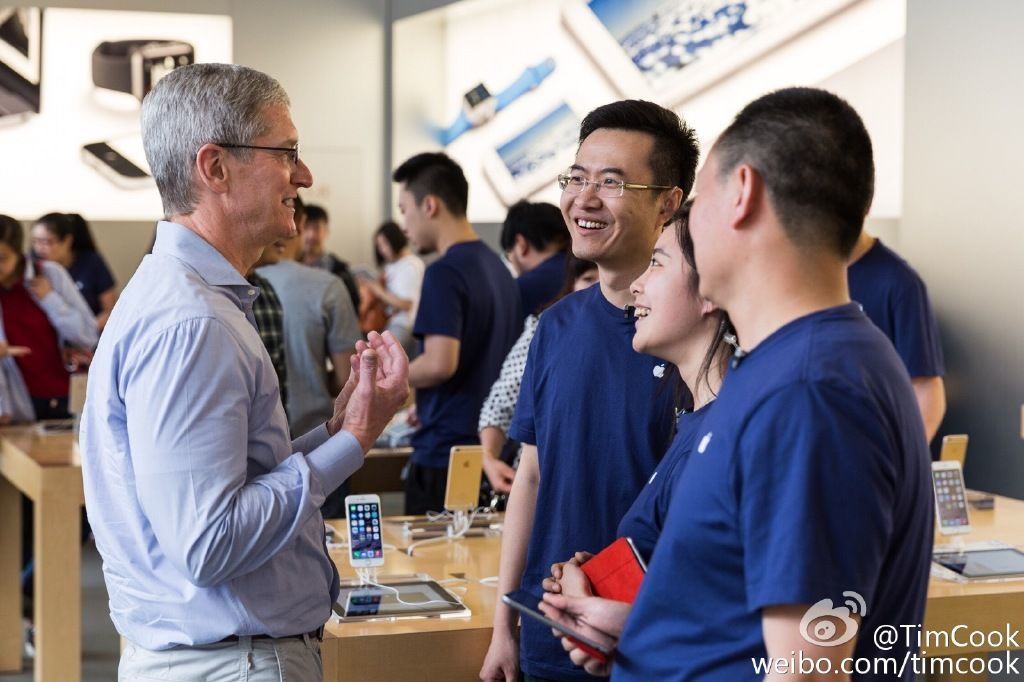China’s surprise devaluation of the yuan is likely to have a massive impact on Apple and its suppliers.
China devalued its currency in an attempt to boost a flagging economy — resulting in the country’s biggest one-day loss in 20 years.
And while some will be celebrating, others (likely including Tim Cook) can’t be too happy about it!
The move positively impacts major Apple suppliers, such as Foxconn and Pegatron, who will see boosted margins as a result. This is because sales to Apple take place in dollars, while the companies’ Chinese workforces are paid in yuan. The devaluation is likely to have less of an impact on local suppliers, since they are often paid in yuan.
At the same time, the devaluation is bad news for Apple — which has already seen a slowdown in business as the result of China’s slowing smartphone market.
“China’s sudden devaluation confirmed market concerns over China’s economic growth. We expect weaker consumer demand for iPhones in China and Apple may raise its product prices later if China continues to devalue its currency,” Fubon analyst Arthur Liao told the Wall Street Journal.
In that case it is likely that Apple would have to choose between either cutting its margins to remain affordable to customers, or keeping them high and decreasing demand. Neither of those options are good.
With Apple in the middle of a massive push to open new Apple Stores in China, and with Tim Cook openly claiming that Apple designs products with the Chinese market in mind, today’s announcement could have major repercussions.



6 responses to “Chinese devaluation is terrible for Apple, great for its suppliers”
You dont know sales have slowed moron
Ironic name you’ve got there.
Disagree. While this devaluation will make Apple retail products more expensive in China (depends on how products are declared imported or not), it could potentially make the cost of parts and manufacturing in China significantly cheaper. My guess is that it will be a wash in the long run.
It states in the article that suppliers are paid in US dollars, so you are suggesting that suppliers should lower their prices to Apple…..I sure wouldn’t.
Apple will probably demand it of them, and they’ll have to reluctantly comply.
I think too much import is being placed on exchange rates against the US$ and what that means to Apple.
Bucking the strength of the US$ worldwide Apple revenue has grown, so far this fiscal year, 29.71% YoY. Gross Margin “% have grown 3.68%, and Net Income has grown 36.15%.
The Yuan has dropped against ALL currencies, negatively impacting all of Apple’s non-Chinese competitors, chief among those is Samsung.
Xiaomi and Huawei are making significant gains in China, but their target market is not the same market that Apple competes in.
IF Apple chooses to adjust prices in China so as to remain attractive to the fringe. What most doom and gloom writers forget is that China’s middle class is growing at the rate of about 50 Million per year. The middle class is the tide that lifts all boats. These new inductees aspire for the best and are willing to sacrifice to get it (unlike the pampered masses of the west).
Beyond all that the Yuan was devalued about 2% against the US$. TWO PERCENT. While large in terms of currency fluctuations, it is hardly the stuff of imminent doom.
A 2% hike in the retail price of the iPhone will be more than offset by the massive increase in the middle class. My take is that Apple will absorb the currency rate change in order to exploit China’s growing middle class. Certainly with its industry leading gross margins Apple can afford to do that.